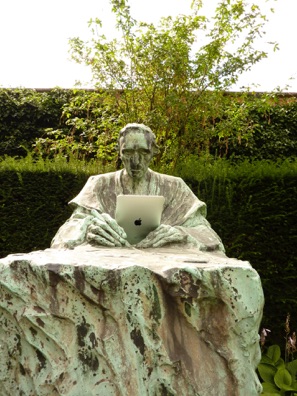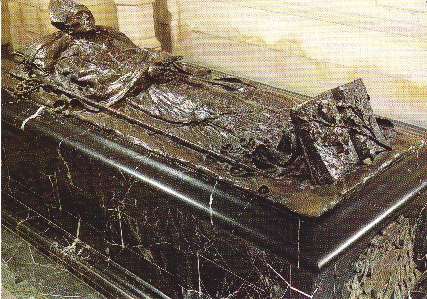Aquinas and the Arabic Philosophical Tradition on ‘Creation’

Aquinas and the Arabic Philosophical Tradition on ‘Creation’


De Wulf-Mansion Centre for Ancient, Medieval and Renaissance Philosophy,
Institute of Philosophy, Katholieke Universiteit Leuven
“Aquinas and the Arabic Philosophical Tradition on ‘creation’”
MA level Fall 2011
Instructors: Prof. Richard C. Taylor & Prof. Andrea Robiglio
richard.taylor@hiw.kuleuven.be & Andrea.Robiglio@hiw.kuleuven.be
Course Description


Aquinas, Alfarabi, Avicenna, Averroes, & Maimonides
W0EM2A Medieval Philosophical Texts
General information
-Academic year: 2011-2012
-Study points: 4
-Language: English
-Difficulty: Basic
-Duration: 26.0 hours
-Periodicity: Taught this academic year in the first semester, on Thursdays, from 4 pm to 6 pm.
Aims
The aim of this course is to familiarize the student with the philosophical work of medieval authors on a particular, philosophically relevant, subject. The course seeks to develop a student’s understanding of individual medieval philosophers by exploring the background to a problem and its treatment by particular writers. By the course’s end, students are expected to be capable of understanding, interpreting, and commenting on a medieval philosophical text.
Previous knowledge
No specific knowledge of medieval philosophy is required, although some background is presupposed (BA course History of Philosophy: Medieval Philosophy). Texts are always read in translation (i.e. in English), so that no knowledge of Latin is required.
Content
Medieval Philosophical Texts is offered every year. The content of the course changes each year, in keeping with the change in themes and texts.
For 2011-2012: «Aquinas and the Arabic Philosophical Tradition on ‘creation’».
Activities
This course aims to provide the necessary knowledge to fully appreciate one of the medieval standard accounts of ‘creation’. The students are gradually introduced to the comprehension of some original features of the Abrahamic traditions (Jewish, Christian, and Islamic) and to the way they had entered in contact with traditional ‘Greek’ philosophical problems as the nature of the world, as well the consequent understanding of basic notions as ‘time’, ‘being’, ‘movement’, and ‘perfection’. To grasp these concepts one should study their genesis and has to do it against the fundamental interplay of ‘reason’ and ‘religion’, as well as distinct theories of knowledge, the nature of metaphysics, the nature and causality of God, and related topics. After examining both the Hellenistic and Biblical background to the medieval discussion, we will examine representative texts from medieval philosophers: both Islamic (such as Ibn Sînâ/ Avicenna and Ibn Rushd/ Averroes), and Latin (like Thomas Aquinas). The discussion shall directly show aspects of the influence of translated classical Islamic philosophy on Christian thought in the Latin West in 13th centuries. Our pivotal question of ‘creation’, as we shall see, expands itself into a web or related questions: How has our world been originated? Is there any absolute cause for it or not? What is, as it were, the nature of such a cause? How does it operate?
Assessment
The evaluation consists of the writing of two short papers. More details will be available before the end of September 2011 on the e-platform ‘Toledo’, including detailed information on course material and evaluation’s criteria.
See the page “Short Essays Assignment” on this website.
Literature
Details on course material (readers, required literature, etc.) shall be available before the end of September 2011 on the e-platform Toledo. See also the Literature page of this site.




Désiré-Joseph Cardinal Mercier (1851-1926)
For ”Aquinas and the Arabic Philosophical Tradition” at the Universidad Panamericana,” 26 Sept - 20 October, click HERE.